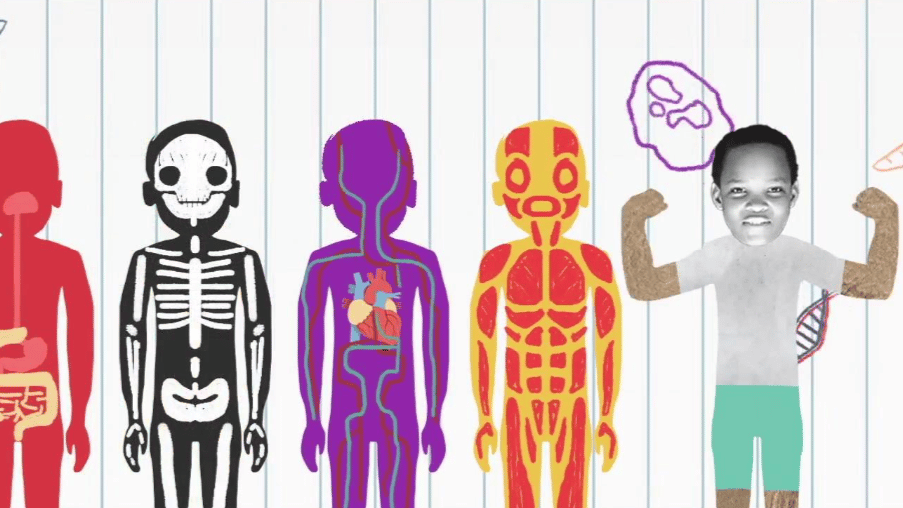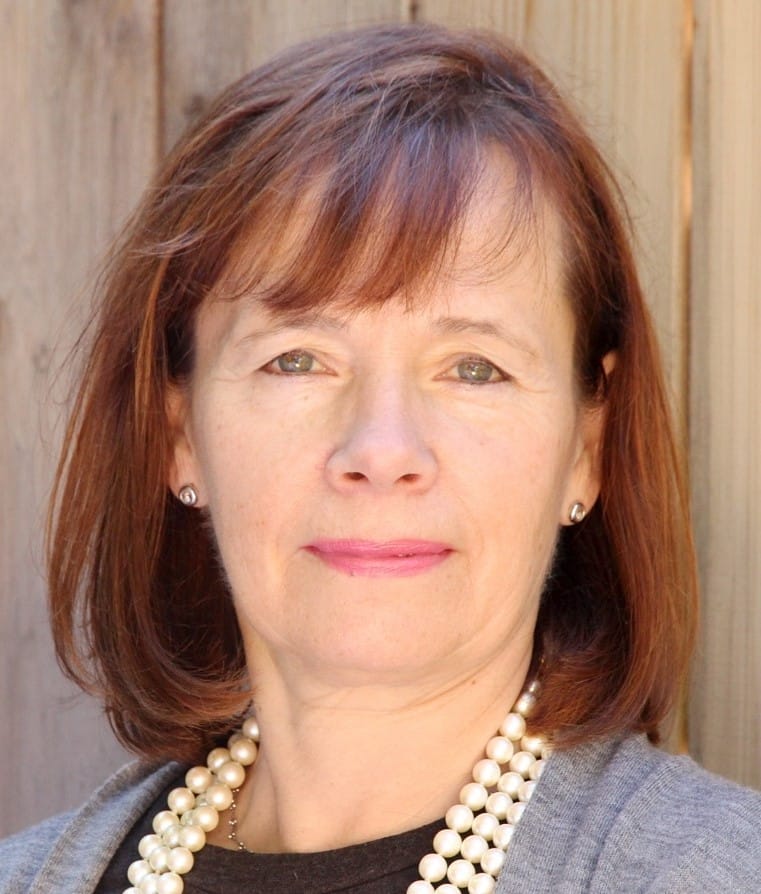COVID-19 has given media firms in Africa a chance to create TV shows that teach science to children and challenge outdated gender norms.

(Photo courtesy of N*Gen)
COVID-19 lockdowns put the brakes on learning for children across Africa and around the world. It also sparked a revolution in African-produced children’s television programming.
With schools closed, creators using media to educate youth on subjects such as sexual health and gender equality pivoted to television. One of those shows, N*GEN, uses entertainment to educate children about science.
Tanzania-based Executive Creative Director Gosia Lukomska of Peripheral Vision International (PVI) and Dr. Joy Kiano, a Kenyan biochemist, molecular biologist and educator, created the show N*GEN to fill gaps in the science curriculum while challenging gender norms by profiling African women scientists.
“When I was young, science was the ‘clever’ person’s subject,” said Kiano, known as Dr. Joy. “In East Africa, if you go into science you are going to be a doctor or a dentist. Physics is about memorizing terms, and it is dense. We wanted to make children’s educational entertainment with people who look like us.”
At the start of filming Season 1, Dr. Joy and Lukomska were working on an episode about skeletons, bones and fossils. Fossils are not part of the curriculum in Kenya.
“Our crew met a paleontologist who showed them images of the Turkana Boy,” Dr. Joy said, referring to one of the most important discoveries in the history of paleontology — a nearly complete skeleton of a youth who lived some 1.6 million years ago, found in Kenya.
“Even I didn’t know the National Museums of Kenya holds one of the world’s greatest fossil collections. No one knew who Kamaya Kimeu, the discoverer of the Turkana Boy, was, and our show was talking about his greatest discovery. I became a nerd about fossils!”
Television has a leg up in much of Africa.
With families across Africa stuck at home, unable to afford Wi-Fi much less a computer for their children to participate in virtual classes, television loomed large.
Free terrestrial television, also called “over-the-air” or “broadcast” television, is the fastest growing legacy medium across Africa. Transmitted to a simple antenna on the TV, television is on pace to challenge radio in most of the continent, according to Paul Falzone, Executive Director of PVI, which produces N*GEN.
Falzone believes that affordable, off-grid solar power is making electricity affordable for lower-income households. Falzone said that when electricity is available and affordable, a television is the one of the first purchases low-income families make after a LED light, a phone charger and a fan.
An American non-governmental organization with a creative team in East Africa, PVI has been using media, technology and popular culture to promote social change for hard-to-reach and marginalized youth since 2014.
To stir young people’s interest in politics and other news, one of their earliest programmes, News Beat, had rappers delivering Uganda’s national news in rhyme and verse. The show aired from 2014-2018 on NTV, the largest private television broadcaster in Uganda. An audio-only version aired on radio stations across the country.
Contrary to the practice in the Global North, Africa’s TV business model forces creators to pay terrestrial broadcasters for airtime.
COVID offered the perfect moment to provide learning over TV.
Ato Micah, Managing Principal of Maverick-Research, a Ghana-based market research firm, explained that the wave of television and radio deregulation across Africa has contributed to the explosive growth of television audiences. Anyone with an antenna on a TV can connect to local broadcasts.
However, free-to-air television has not found a way to monetize itself, Micah said. “The legacy stations are pay-to-play,” he said. “If you produce a programme, you pay a broadcaster to air it.”
With advertisers focused on the wealthier audiences of paid providers, broadcasters across Africa air cheap telenovelas and other inexpensive programming. “Paid providers such as Netflix, Disney and Nickelodeon only reach 10% of the population,” said Jesse Soleil, president & co-founder of Akili Network. “And it’s the same content across their networks. Free TV is essential to reach those who cannot afford paid platforms.”
Soleil said that when COVID-19 hit, children and their parents were suddenly stuck at home. “It was the perfect moment to build audiences for very good children’s edu-entertainment programming,” he said. In March 2020, Akili Network launched Akili Kids!, an African children’s TV network. Akili Kids! broadcasts N*GEN and other shows in Kenya.
With lockdowns keeping kids out of schools, Falzone and the PVI team also looked to television as the opportunity to provide learning in an entertaining format.
“We reached out to teachers and asked what could be helpful,” Falzone said. “Misinformation and distrust in science were rampant. We wanted to elevate science and give people tools to think critically. We wanted to provide COVID tips that were engaging. And we wanted to elevate women and girls. We had an idea for N*GEN in April and were on the air in late August 2020.”
Transforming learning for a fast-growing population
Now airing on 45 mostly terrestrial broadcasters, N*GEN is developing Season 3. Season 1 was produced using PVI’s own resources. Liking what they saw, Season 2 was funded by the U.S. State Department.
PVI is part of a small but growing community producing socially beneficial children and youth television in Africa.
Ubongo, a non-profit based in Tanzania, is one of Africa’s leading edu-entertainment media production companies. According to Falzone, Ubongo pioneered the practice of giving broadcasters high quality children’s programming for free, with donor support to produce the shows. With a pan-African focus, PVI, Ubongo and others are changing children’s programming for the better.
Micah is certain that advertisers will take notice. “Quality children’s television content will establish trust with parents, and that will attract advertisers,” he said.
“Parents like me are looking for programming that is good for our kids. Giving kids something to have fun with and to learn — there is a set of advertisers that are seeking this. If it’s a trusted medium, the audience is more likely to trust the advertised brands. Audiences will have better recall of brands, making it easier to make the case for advertisers.”
By 2050, UNICEF estimates that one in two Africans will be under 25 years of age. The continent will be home to one billion children and adolescents. Like “Sesame Street” for generations of youth in the Global North, organizations such as PVI, Ubongo and Akili Network have the potential to transform learning for this young and fast-growing population.
Three questions to consider:
- Why did COVID-19 offer media companies a chance to focus more on education?
- In your country, do more males than females become scientists?
- How is Africa’s TV business model different from that in the Global North?

Susanne Courtney is a freelance journalist and writer based in Canada. A former Fellow in Global Journalism at the Munk School of Global Affairs and Public Policy, her writing focuses primarily on international affairs, international development and development finance. Recently she authored the 2021 State of the Sector Report on Canada's Impact Investing in Emerging and Frontier Markets.
